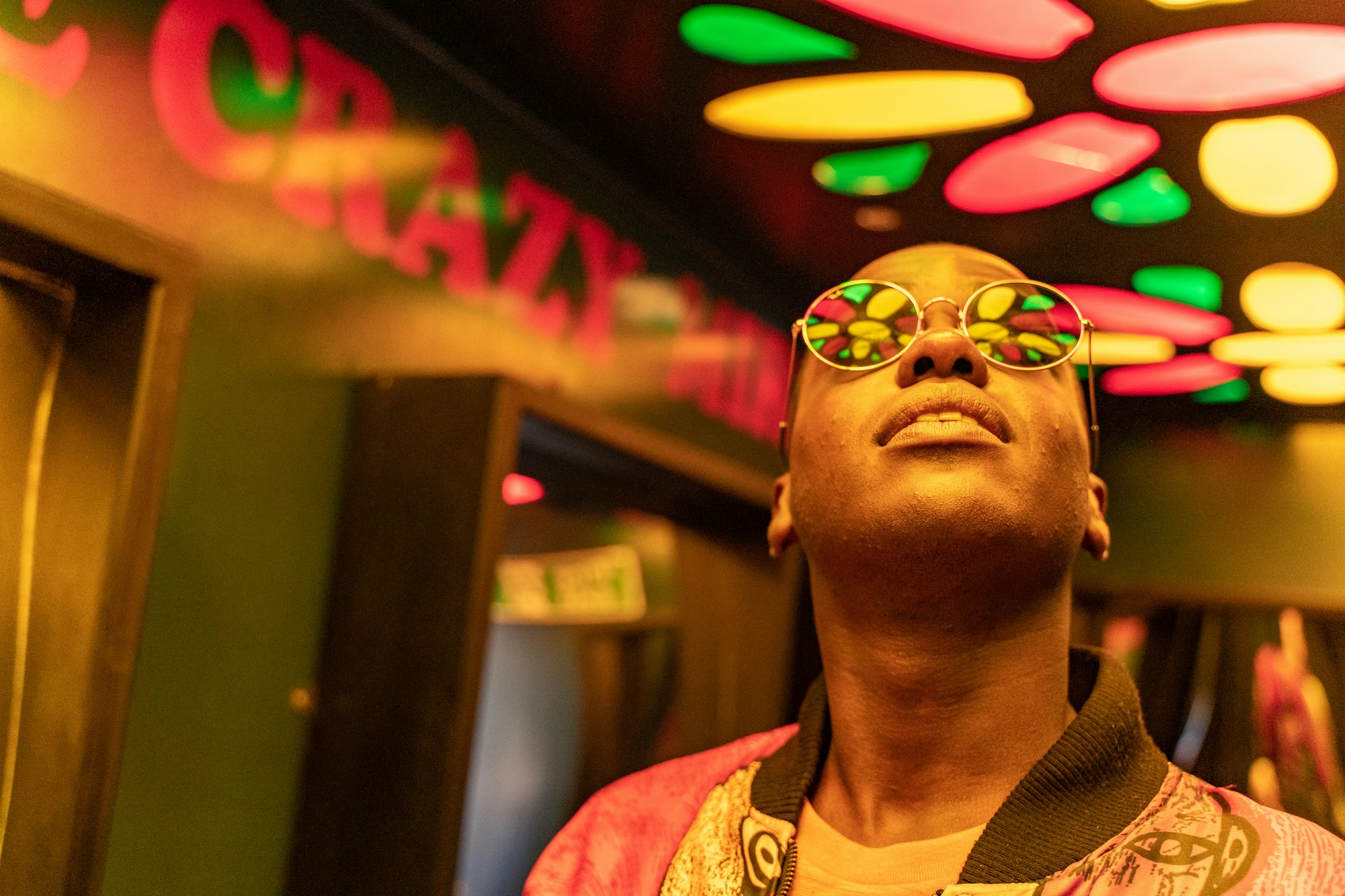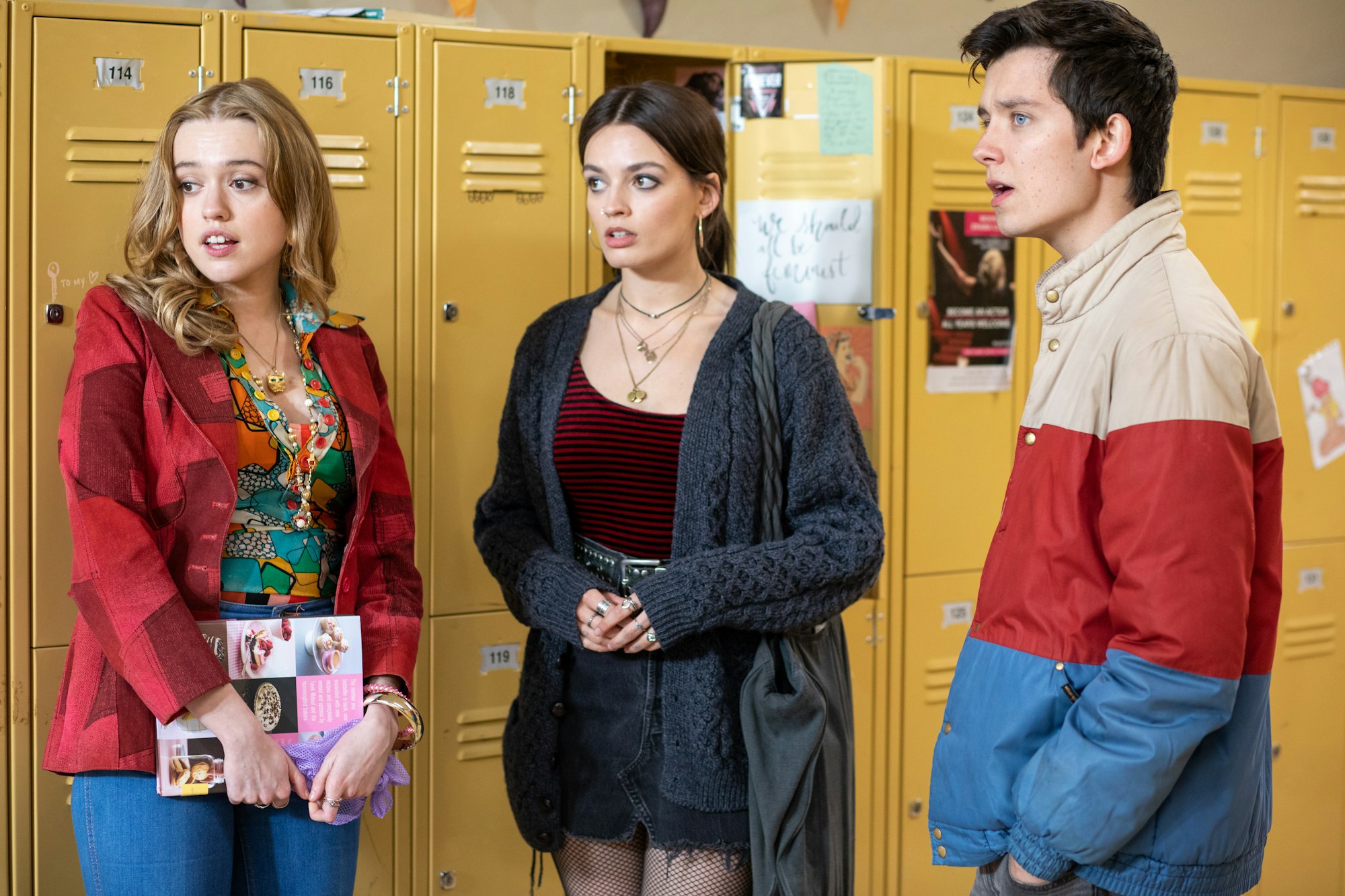Words Ann Lee
The first song Oli Julian ever composed was about an unrequited crush strummed wistfully on his guitar. “I think I immediately wiped the tapes,” he laughs. As a teenager, he loved to mess around on his 4-track and eventually started producing his own albums. “I really got into home recording. I was writing songs on my own about how awful life was. I'd never play them now! I learned the tools of the trade that you need these days, where you have to be a composer, a mixer, and producer all in one.”
Back then as an aspiring singer/songwriter making folk music in his bedroom in Cheshire, he had no idea that composing was even a career option until he finished his master's in music production at the University of Westminster after studying languages as a degree. “I made the massive shift from doing it on the side to realising I could actually do it as a job,” Julian says from his studio in Sheffield.
Since then, he has carved out a hugely successful niche for himself as a composer for TV comedies like Catastrophe, Motherland, Plebs, Breeders, and The Duchess. For the past three years, he’s been scoring Netflix's Sex Education, a hilarious comedy-drama created by Laurie Nunn about a teenager named Otis (Asa Butterfield), who inspired by his therapist mother, Jean (Gillian Anderson), sets up a makeshift sex counselling service at his secondary school Moordale. The third series returns this week and it’s back with a resounding bang.
“The brief for season three was to develop the sound a bit more in the direction that really worked in the first two series,” says Julian. “I always get the scripts ahead of time, which helps me to digest where things are going and what might be good to focus on. The director, Ben Taylor, really wanted me to push the synth side this season and start incorporating more of this John Hughes eighties sound into it. Then there was also the more indie film kind of sensibility. The other reference that we talked about from the beginning was Jon Brion. So we've always had those two aspects.”
I love working in comedy. It's genuinely nice to sit down and just laugh out loud when you're watching an edit for the first time.
As a comedy that deals sensitively with sexuality, body positivity, identity, and class, Sex Education has been a massive hit for the streaming platform. The third season sees a new headmistress (Girls star Jemima Kirke) arriving at Moordale, determined to enforce sexual abstinence across the campus. Shame is the overriding feeling that weighs heavy on the students this term either around their bodies or when dealing with social situations; Adam (Connor Swindells) is struggling to accept himself as a gay man after coming out in season two, newcomer Cal (Dua Saleh) is trying to come to terms with their body as a non-binary person, and Aimee (Aimee Lou Wood) is still traumatised by a previous sexual assault.
“The music has to do a lot of jobs,” says Julian. “It has to underscore the comedy. It has to deal with the darker moments. I tried to keep the balance between the lighter elements and the more emotional elements that are part of the issues that they're talking about on the show. In season three, we go to places with the characters that we haven't really necessarily done before in those first two seasons.”
The key to this was the use of woodwind instruments. “We use woodwind, saxes, lighter percussion, and more acoustic elements for a lot of the lighter stuff. For the scenes that deal with the older characters, we lean on more traditional instrumentation like pianos and strings. But there are no strict rules. It’s very much an ensemble show so I try to make sure that there's enough overlap between the themes so that I can seamlessly go from one character to another character, and it feels right and not too jarring.”
Ezra Furman has also provided music for the past two seasons and is back again for the new series. The indie musician manages to capture the awkwardness of teenage life in her catchy, anthemic songs. Some like Love You So Bad and Restless Year were repurposed from her previous albums while others were created especially for the show. Julian works closely with Furman to make sure the show’s original music is balanced with her tracks along with the commercial hits that are also incorporated on the soundtrack.
For the scenes that deal with the older characters, we lean on more traditional instrumentation like pianos and strings. But there are no strict rules.
“She's such a great fit for the show. Her music really embodies what the show is about - that teen angst, that kind of world," he says. "There's a rawness and an urgency to her music. Ezra’s approach was to write songs in advance from the script stage. Then we get the demos and have a listen to them. We talk to the editors and figure out where they might work in the script and in the story. Then we'd go away and fine-tune those songs. In some cases, I'd add a few strings or other bits of instrumentation that might help to blend it with the score. Or sometimes I would extend elements and work more like a music editor. We've got a new batch of great songs for season three. I feel like the music is another character in the show. It just works with the overall aesthetic and feel.”
Growing up, Julian loved listening to the Back to the Future score as well as John Williams’ iconic soundtracks. But it was only when he heard Brion’s scores for Eternal Sunshine of the Spotless Mind and I Heart Huckabees that he realised that soundtracks didn’t necessarily all have to be lush orchestral epics. “I realised you could do scores in a more band-y, track-y way. That really excited me. I suppose that probably had an impact on how I thought I could score films.”

After finishing his masters, Julian got a job as a runner in a music production company before ending up at Soundtree Music, a collective of composers, producers, musicians, music supervisors, and sound designers, based in London. During his time there, he worked on advertising campaigns for big brands like Stella Artois, Miracle Whip, and Twinings.
“A lot of composers start off as assistants to other composers. I didn't do that. I started the other way, which was to start from the bottom as a tea boy in a company and work your way up. I'm glad I did. I started before the explosion of social media and before it became fully democratised. You can go on YouTube now and see how to get into something. But 20 years ago, there was still a sort of mystery surrounding getting into this area and I only figured it out on the way."
Even so, Julian thinks it's still challenging for aspiring composers hoping to break into the industry now. "There's so many. It's quite daunting to see on forums and online, how many people want to get into it. Obviously, technology has become more accessible and you can produce a very good quality piece of music from your bedroom if you have the right equipment. That wasn't necessarily the case 20 years ago so it's all changed.”
Julian has collaborated with Taylor since the director’s first show, Spy, a Sky comedy about a man who accidentally becomes a trainee secret agent for MI5. The pair have also worked together on Cardinal Burns, Cockroaches, Cuckoo, Catastrophe, and Year of the Rabbit. The composer has always had a soft spot for comedy although he never really set out to work mainly in that genre.
“I watched a lot of comedy growing up and my sensibility is probably towards that. My first TV show was with Ben. Then you end up working with the same producers and directors. They are probably going on to do similar things. So I just racked up a lot of sitcoms over the years and have slowly also moved into drama. Music for comedies is just music. It has to have the right tone. It doesn't need to be inherently funny. It just needs to work well with the pictures.
“I feel like, over the last 10 years, the line between comedy and drama has almost disappeared, really, in many ways. I've naturally gone on to more projects that have more of a drama edge. But I love working in comedy. It's genuinely nice to sit down and just laugh out loud when you're watching an edit for the first time. It's great!”
Music for comedies is just music. It has to have the right tone. It doesn't need to be inherently funny. It just needs to work well with the pictures.
Julian's work has also won him plaudits. His score for Us, a BBC comedy-drama based on David Nicholls’ best-selling book, has earned him a nomination for an Ivor Novello Award in the Best Television Soundtrack category. The winners will be revealed at a ceremony on September 21. “I'm really proud of that score for Us because it was a slightly new direction for me,” he says. “All the judges are people who work in the industry so to get that recognition is really special. It's an honour to be amongst those other composers in that category because they're all amazing. I'm just very happy to be nominated.”
Whatever show he’s working on, there is a quintessential Oli Julian style that he thinks comes down to his background as a drummer. As a teenager, his first love was drums but he had to branch out to enhance his songwriting skills. “It's hard to compose as a drummer so I had to learn more instruments in order to create my own band,” he explains.
“Because I was a drummer, my writing process, first and foremost, is quite rhythmical. I always start with the rhythm aspect of something. Melody and harmony is almost secondary, feel and groove to me comes first. That influences the sound and style. So even though any given project I work on can have very different instrumentation, the rhythmic aspect of it, sounds like me. Working in comedy, I’ve tried to keep things generally upbeat and fun but with moments of emotion and pathos as well.”

For Julian, there is no better high than when the music slots together on a score and it’s a feeling that he keeps on chasing. “I love the emotional rush when you land on a melody, harmony, or rhythm that just clicks and feels right. You know you've cracked it. It might be two minutes into the process or it might be two days into the process. But you realise you've got something. That feeling is like a dopamine rush. It's what I love about it.
“Obviously, music is subjective and not everyone will enjoy music that you've written for that reason. But the best you can do is aim to create a piece of music that does that to you. Then hope that other people like it as well. That's why I do it. That's why it's a great job.”
